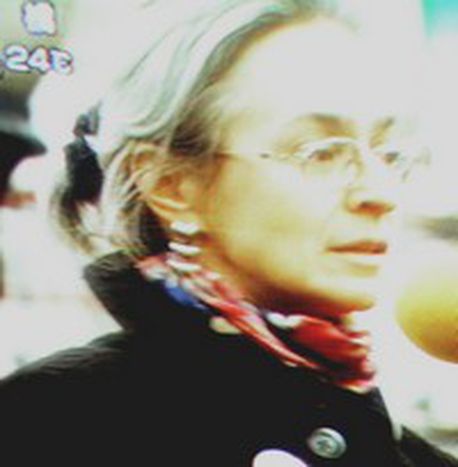
Chechens in Paris: bureaucratic odyssey
Published on
Translation by:
Nabeelah ShabbirFar from the conflict-torn Caucasus, we meet the Chechnya Committee in Paris, who won’t allow a forgotten war to be erased from the European memory
A cold December evening in Paris. The Chechnya Committee is bursting with activity in their headquarters, not far from the Place de la Nation. In the association's small office, a poster is stuck on a wall, in front of a line of old seats filling up the space in the waiting room. It reads 'Terror there, silence here'. 'Terror' is the continuing violence, including that raging between civilians, caused by Russian aggression in the Caucasus' rebel republic. 'Silence' signifies the almost non-existent coverage of this war by the European press. You can only gain access to this region with special permits or through 'Lastrjembski tour' visits, organised by the communication department of the pro-Russian Chechen government.
Displaced even in Poland
The Chechnya Committee has been active in France since 1994. Their mission is to 'raise awareness amongst the authorities and the public about the Chechen war, especially concerning the cruel assymetry between the power of the Russian army and the indefense of the civil population,' according to Committee member Martin Rosselot.
The association – the majority of whose members are French, as the Chechens fear retaliation for those families who are still in the zone - also support Chechens living in France. Those receiving asylum have to go through an extenuating bureaucracy marathon in the land of human rights, and certainly need the help. Common legislation resends the asylum-seeker to the first European country in which they set foot when they fled Chechnya. At the very least, this includes Slovakia, the Czech Republic and Poland.
Here matters are more prickly. For Rosselot, ‘the Chechens don’t want to stay in Poland because they worry it is too close to Russia. They are frightened for their safety, of ending up in the hands of Russian spies. Another disadvantage in Poland is the bleak hope of gaining refugee status – only 8% of applicants are successful, in comparison to 20% in France’. And whilst they wait to see whether they will be resent to the East or whether they can find official refuge in France, the Chechens are not entitled to any aid. Nor can they get any regular work.
Politkovskaya’s courage
Those who do manage to gain a status have to begin from zero without the language capabilities, a roof or a job. Many Chechens here in Place de la Nation think that a journey back home is impossible, at least not now.
How do they see the situation in Chechnya? The Committee has notes more and more pessimism amongst Chechens. Independence from Moscow remains a goal, but negotiation is impossible with Putin in power and a weaker opposition to the Russians, as the political murder of Chechen war reporter Anna Politkovskaya grimly showed.
Rosselot is no less critical of Europe, who he blames for a ‘hypocritical attitude in recognising Chechens as asylum-seekers and without a doubt, for their meek efforts in finding a political solution to the conflict, such as vaguely pressurising Russia diplomatically. The only exception, after the 2002 bloody siege of Grozny, capital of the Chechen Republic, was when the European Council suspended some provisions in the Partnership and Cooperation Agreement. The final word goes to the figures, and the estimated 50, 000 – 100, 000 victims who have lost their lives since 1991.
Translated from L’odissea (burocratica) dei ceceni a Parigi



